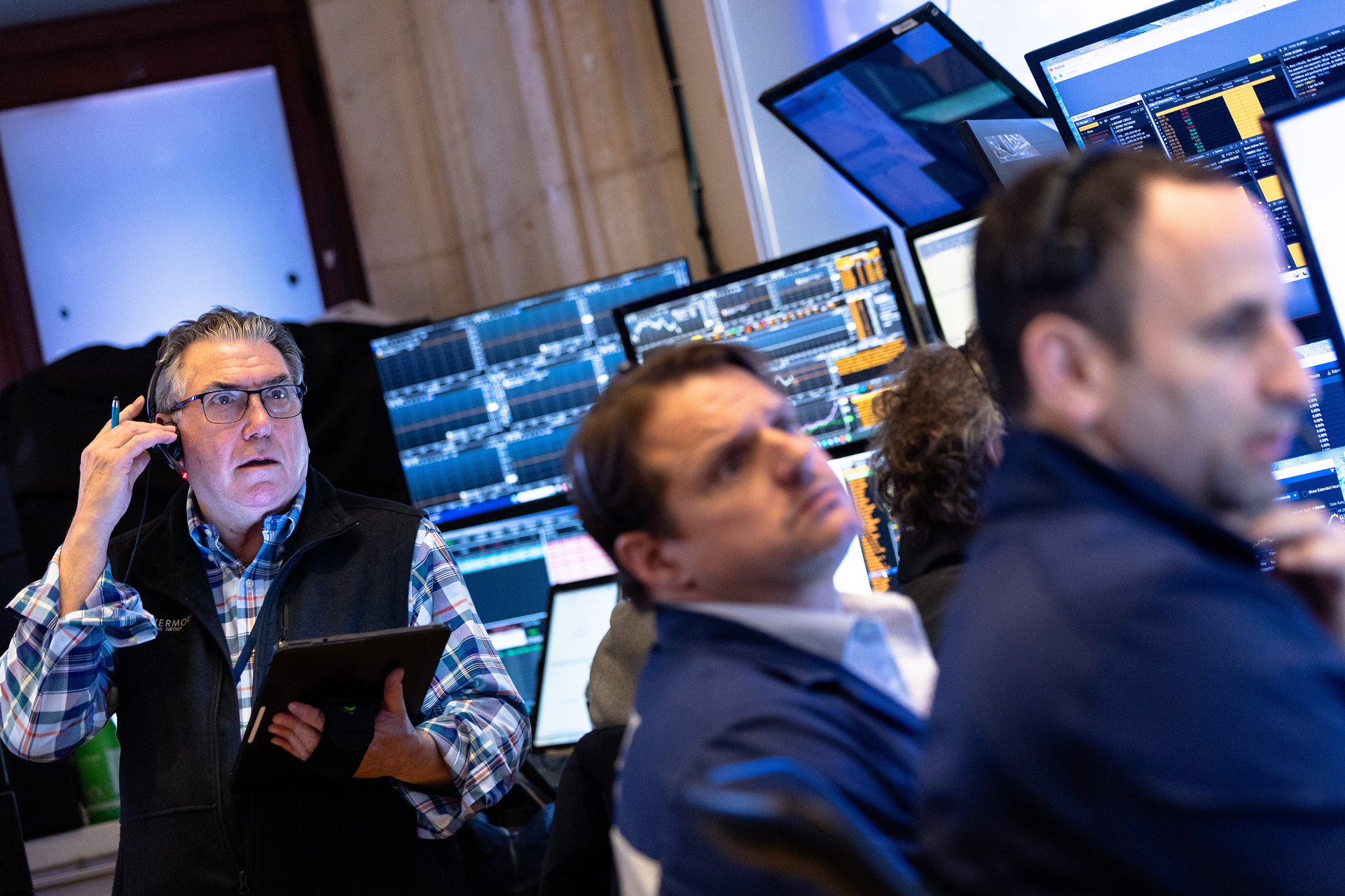JPMorgan says the risk of a recession has reached 60% as tariffs are set to take a toll
"U.S. trade policy has turned decisively less business-friendly than we had anticipated," analysts said

President Donald Trump’s tariffs are making the risk of a recession more likelier than not, according to analysts at JPMorgan (JPM).
Suggested Reading
A team of strategists led by Bruce Kasman said in a Thursday note that the risk of a recession has now surged to 60% from 40% after the president’s newly announced tariffs surprised economists and corporations with how far they went.
Related Content
“Disruptive U.S. policies has been recognized as the biggest risk to the global outlook all year,” the analysts said. “The latest news reinforces our fears as U.S. trade policy has turned decisively less business-friendly than we had anticipated.”
Futures linked to the S&P 500, Nasdaq 100, and Dow Jones Industrial Average are all in the red on Friday, following declines on Thursday. Nasdaq 100 Futures are down 14% year-to-date, while S&P 500 Futures are down by more than 10%.
The Trump administration has set tariff rates at about half of what it says other countries levy on American imports and imposed a 10% base tariff on almost all nations. After all the tariffs take effect next week, importers, who are responsible for the levies, will pay much more for most goods.
Major U.S. trade partners have been hit with tariff rates far above the 10% minimum. China, which has announced 34% retaliatory tariffs and added more U.S. companies to its “unreliable entities” list, is facing tariffs of 54% altogether, while Vietnam has been hit with a 46% rate.
JPMorgan estimates that the average U.S. tax rate has been raised to 24%, and the equivalent of about 2.4% of gross domestic product, making it the largest tax hike since World War II. Other analysts have produced differing effective tax rates, but several agree that Trump’s tariffs now rival those implemented by the Smoot-Hawley Act, enacted in June 1930 to protect U.S. farmers and businesses from foreign competition and which worsened the effects of the Great Depression.
Kasman’s team said that the tariff hike could be even more damaging than those enacted in the 1930s, since the share of imports has grown as the global economy has boomed. JPMorgan said it hasn’t immediately changed its forecasts because the tariffs are not yet in effect and negotiations are possible. The duties will come into full effect by next Wednesday.
“We thus emphasize that these policies, if sustained, would likely push the U.S. and possibly global economy into recession this year,” the analysts said.
The president has said he is open to negotiating with trade partners, despite his advisors’ comments. Commerce Secretary Howard Lutnick said on Thursday that all major countries are in communication with the White House.
Phillip Magness, a senior fellow at the Independent Institute, says the effective tariff rate will make U.S. duties higher than those imposed by Cuba, Venezuela, and many developing economies. He also noted that negotiations could be difficult as even countries that have moved to slash their tariff rates — such as Israel, which faces a 17% duty — have been hit with new levies.
“That doesn’t really signal good faith in terms of negotiation on Trump’s behalf, but I think it really actually undermines his claim in true reciprocity,” Magness told Quartz on Thursday. “He only wants reciprocity that goes in one direction, and that is up.”
